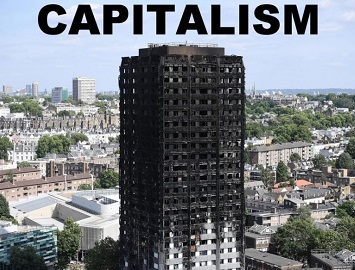Australians believe they have a strong and vibrant democracy, but the truth is far different. Adam Henry comments.
I have read and heard repeatedly, usually within US sources, that no other nation has done so much to promote ‘democracy’ in South America than the United States. If we consider the implementation of procedural democracy (elections, parliaments etc), the systematic crushing of liberal and left wing nationalist and economic reformers and labour organisations, and the implementation of US style free market economies with investment climates favourable to US multinationals, than the statement in the first sentence is completely true. If you believe that democracy should be an expression of the people’s will or desire for social and political justice pursued through parliamentary means, then you would argue that no other country has done more to crush democracy than the US.
It is the definition of democracy that seems to be the problem: what does it mean to us, what should it mean, and in what forms should it be pursued. I have read and also heard that Australia is a highly democratic country, yet the symbols of this Australian love affair with ‘democracy’ are buildings like Old Parliament House, New Parliament House in Canberra, the vestiges of an Imperial past, and a military alignment with the United States.
We love to watch Question Time, we love to comment on politics, we love to engage in State and Federal Elections and we love to listen to the experts talk about voting trends and ‘the swing vote’ in each and every electorate that may or may not result in a seat being won or lost by a major party — but is this really the extent of our love affair with Australian democracy? I would suggest sadly, that it just might be so; that is, we are procedural democrats and economic materialists at heart.
We value rule of law, stability and the organisation of our society into ‘interest groups’. Australians at heart are comfortable with being a corporatist state committed to the transition of power by electoral means. Since at least the 1980s, power has been and will continue to be, monopolised by two mainstream political ‘interest groups’, both of which are largely disconnected from the realities of everyday Australian life. An interest rate cut here, a government program there, a piece of legislation here, an amendment there — there is, in reality, precious little difference between Liberal and Labor in modern Australia. The stark reality is, on the majority of issues, both parties essentially agree with each other. The occasional ideological differences – which are exceedingly rare indeed – are played up, almost in desperation, by both parties, so they can demonstrate some points of difference, as well by the Australian media, which is desperate for any narrative of political conflict in an age devoid of any of the vibrant colours of democracy.
In an age of media manipulation, focus groups, opinion polling, and the tedious tyranny of what comedian Billy Connolly called beige people, individuals such as Andrew Bolt, Robert Manne, Alan Jones, Cardinal Pell and Paul Howes, etc, appear every few seconds (it seems) in print and on tv as self appointed spokespeople for this section of the Australian community or that, often without the slightest questioning of their right to do so. This is an epoch era of corporate greed (otherwise known as the mining or coal, seam and gas boom), that may in time become known not as a golden one, but as the great Australian era of beige.
Is this the extent of Australian democratic expression, as demonstrated by the degrading intellectual spectacle of Q and A on the ABC? Surely not. This is, to quote Peter Gabriel from ‘The Lamb lies down on Broadway’, the “dull parade of lifeless packaging”. We are, it would appear, uncomfortable with grass roots activism or opinions that differ from the standard parameters of mainstream debate, but the manipulation of opinion by mining magnates, climate sceptics and mainstream political parties are considered par for the course. How can it really be that members of our mainstream political parties have no obvious commitment to social justice, equality, truth or community outside the obligation of their party memberships or electoral cycles?
At present we have two mainstream parties who quite literally stand for nothing, say or seem to believe in nothing more than the soulless objective of winning power through procedural democracy — either by election or parliamentary manoeuvring. With such low levels of actual membership, who exactly do the Labor and Liberal Parties actually represent? To argue that you must vote for one or the other is not logical, you should vote because someone has convinced you they are truly worth voting for. The general apathy of Australians towards politics belies the interest we seem to take in political gossip and elections. Perhaps few people would bother to vote if it was not compulsory, but in any case why exactly are we made to vote by law for such a narrow and unrepresentative group of mainstream politicians we neither like nor respect? It is a good question to consider.
The Gillard Labor Government continues its long slide to the very bottom of the ethical and moral abyss, with only its determination to cling onto power no matter what and a carbon tax able to provide any semblance of direction. Yes, after a number of years in office, a piece of tax legislation might be the one lasting achievement of the party once led by Chifley. That is, if they somehow manage to get it through both chambers of parliament. Seemingly the only thing being offered by the Abbott led Opposition is that they are not the Gillard Government. That is the extent of the Australian love affair with democracy.
Perhaps when we begin to actually demand more from our elected officials and hold them accountable in their words and deeds, take voting to be a serious business, then our often cowardly political and media elites will feel compelled – and heaven forbid, obligated – to provide something resembling representative democracy. Until then, we can live in hope of ‘Democracy’ next time.









